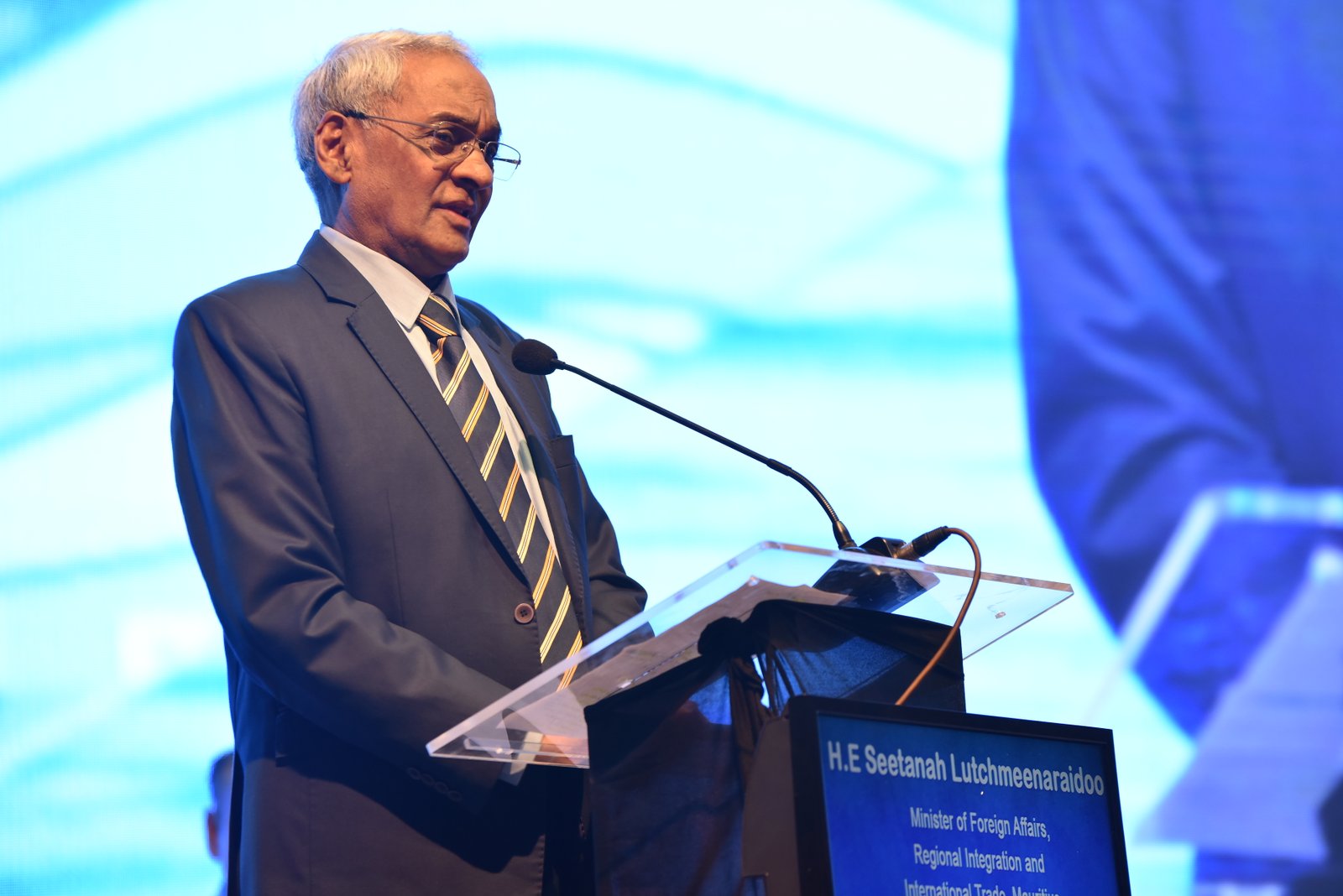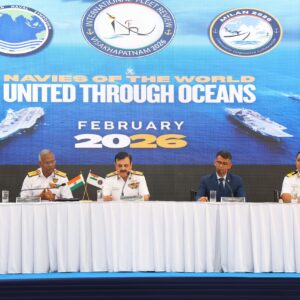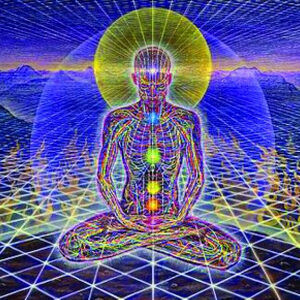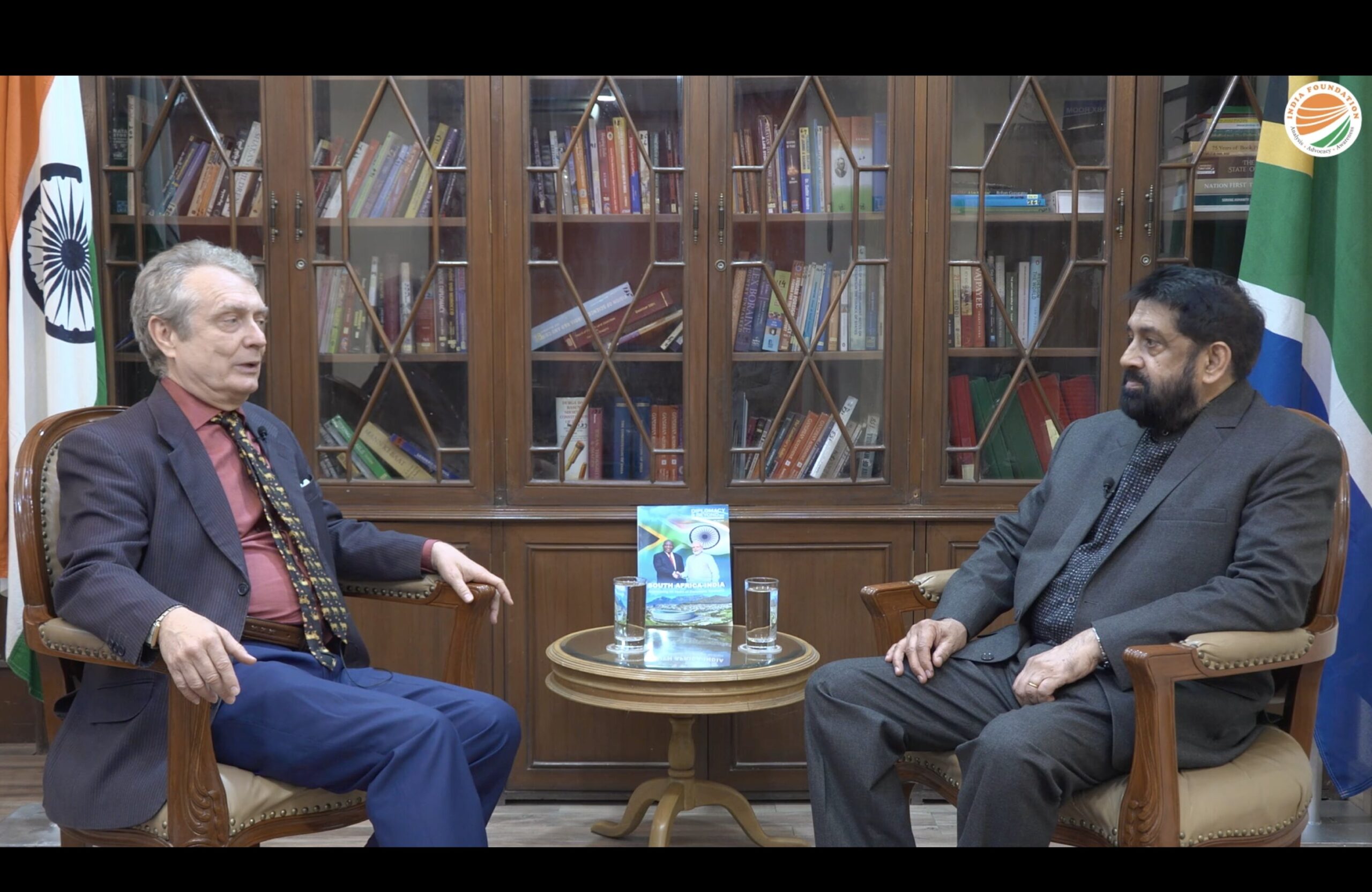If the world stopped dreaming, there would be no great future for this planet. When thinkers, political thinkers and governments come with huge ideas that might look impossible to implement, we have to think of one thing that in 1957 the current European Union (EU) was just a common market. The Treaty of Rome was signed in 1957. No one thought that 50 years later this common market will become this huge EU that is today on the verge of political integration. Dreams come true when it achieves a critical mass. The dream of Prime Minister Modi, the Security and Growth for All in the Region (SAGAR) dream is for the future of the region. The first reaction is to say – how can this be? Because it looks like a Titanic project.
When it comes to regional integration, when it comes to reach the ocean architecture, when it comes to living together and learning to live together, we must remember that the post-colonial period of one market one planet is over. What was termed as globalization is the concept of one market one planet. The concept of a one size fits all approach of the World Trade Organization is over because it is no longer reflecting what the future of this planet is. Geopolitics is moving from one center to multi centers which we cannot ignore. This is probably where we have to acknowledge that the globalization approach, the global village approach, has not worked. The World Trade Organization today in Geneva is looking for a way of reinventing itself.
What is now becoming a very quick reality is a very strong commitment of countries to unite within one region. Who would have thought that Africa’s fifty five nations would meet and would dream of one African continental free trade area? Mauritius has also joined the Africa Free Trade continental area. Mauritius will also be signing very soon the trilateral trade agreement that comprises Saudi and East Africa. This is a clear indication that the world is regionalizing itself. So, within this global approach, the initiative of India is something that we have to deal with respect and see how we can work it through. And we cannot ignore also that there are various knitted initiatives.
One is from China. Japan also is on a major initiative. All of them rotate under one beautiful concept. As Smt. Sushma Swaraj said, “We want interdependence and not dominance.” First aspect, we have lived the colonial period of the mighty and the weak speaking of interdependence makes sense. A win-win situation where all players are winners is something which is new which we have to respect and the fact that we are all thriving for peace, for stability, for security, for prosperity, also makes sense.
Mauritius is fully behind these initiatives because as a small island it is compelled to open itself to the world. There are things we cannot ignore. It would not be in the interest of those huge projects that we try to hide under the carpet certain realities. The following are some of those realities.
1)Sovereignty and territorial integrity: We should not forget that most of us come from the colonial period. This proud nation, Vietnam, through an incredible sense of courage of commitment managed to get oppressors out. We all come from colonies and we need to be respected and we need one thing that our territory and our sovereignty is fully recognized and respected. In fact, any regional project that does not go in the sense of respect of national sovereignty and integrity will not go through. We have to concentrate and pay great attention to it and not ignore it.
2) This one size fits all approach cannot work. The World Trade Organization managed through a few decades to dictate that we all have to follow only one road. We have realized today that the one size fits all approach will not work for two reasons.
- i) In the group that we are speaking of, GDP per capita ranging from USD 400 to USD 40,000, the divide is huge. We have to bear this in mind that when we want to work together, we have to also take into consideration the fact that we are all not at a level playing field in terms of revenue. We are dealing with countries which are different.
- ii) We are from countries less than 2,000 square kilometers and we are speaking of organizations where there will be huge countries like China and India behind it. When we speak of working together, we have to acknowledge the size of the countries, and the weight of the countries are to be considered when we work out schemes to work together.
Those are probably a few points we should not try to hide below the carpet, issues which we will have to deal with if we want the organization to succeed. Therefore, we have moved away from continental FTAs like the EU and the Commodity Futures Trading Commission (CFTC) and we are now developing the concept of ocean FTAs. It is beautiful that we are connected not by territories but we are connected through the ocean. What we are proposing today is to say that all those who are connected through the oceans can work together in the interest of all and prosper.
What we are doing in Mauritius might be of interest to others. In Mauritius there is a problem. It is a middle-income group country stuck in the middle-income trap. Mauritius is trying to move out of it with the help of three new pillars which coincides with what we want to do today. The three pillars are for the Mauritian economy for the 50 next year probably will be (i) ocean economy, (ii) the maritime hub development on the same basis as Dubai and Singapore, (iii) the Africa story: Mauritius is part of the fifty five states forming part of Africa.. So, the three components have helped us to look deeper into trade and marine security.
Mauritius cannot survive without trade. It has learned to open totally to the external world. It is doing it through two ways: (i) Through the signing of bilateral FTAs, and (ii) Through working with governments on a G2G level. We are not fighting regional FTAs, they are there. We are committed to the Africa FTA. We are also committed to other initiatives. But still we think that waiting for the whole thing to develop might take time. So, what we are doing now is working out FTAs. So, we have signed the Africa Continental FTA plus the trilateral FTA and we have moved on the left to opening the door with countries that can contribute to the development of Africa. We are presently negotiating with India to set up a huge FTA to work on bilateral India issues. We have finalized an FTA with China which would be the first free trade agreement between China and Africa. And, we are also negotiating other FTAs to ensure that Mauritius starts behaving like a connecting link between those who want to invest and those who want investment.
Mauritius is working with countries in Africa because we do not have the means of working with all other 54. So, we have G2G agreements with Ghana, Ivory Coast, Senegal and recently with Kenya. We are moving ahead on a G to G agreements where both the governments commit themselves to working together on project development. The G to G joint commission with Kenya was held in August 2018. We are speaking of billions of dollars of investment in special economic zones and what we are trying to do in Mauritius is to be the transmission belt between those who want to invest like the investors, investment, finance technology and channel it through the financial sector of Mauritius to the African countries. That is what we are doing in terms of trade. We are not showing the weight. We are just trying to survive and to develop in an environment which is not easy. This is trade.
The second aspect is maritime security because we speak of the ocean, and ocean means SDG. It means not only sustainable use of ocean resources, it also means protection of the marine ecosystem which is our responsibility. What we have been doing is trying to contribute our solution to the whole thing. So, in April of this year the Indian Ocean Commission with the Mauritian government and Brussels and the EU organized in Mauritius a Maritime security conference. That group consists of some 250 major player countries and organizations. We did it and we realized here also that when it comes to Maritime security there also, we cannot play the game of hide and seek.
There are countries who are voluntarily not seeing that their own fishing companies are destroying the ocean by illegal fishing. The Indian Ocean today is being pounded by fishing companies who are not recognized officially by their countries but tolerated by their countries. Some countries are helping in the destruction of ocean resources and staying put. We have to speak about it and when we speak of sustainable use of the ocean, we also have spread the idea that we are responsible vis-a-vis the ocean in terms of preservation. When it comes to the preservation of the Marine ecosystem, it is easy to see that climate change is present. We are short of financial resources to ensure the survival of our ocean.
Our Ocean is a planetary gift that we have had from the lord so we have to protect it. And there again what we are seeing is that in spite of what we are doing, pollution has reached levels never attained in this part of the world. We have to acknowledge it. Before cleaning, we have to acknowledge that there is dirt to be cleaned and that is why when we speak of the marine ecosystem, disaster management is something which is so crucial. It is our capacity to be prepared when it comes to meeting with disasters. For instance, when there is petrol spill in the ocean, we need immediate action.
The whole idea of disaster management is being looked into a very superficial way. Superficial because disaster management is something where we need action and quick action. For quick action to take place, there needs to be exchange of information. Let us say in the Indian Ocean close to Mozambique there is a problem. We need to be in a position to deal with it quickly and efficiently. And here, the large countries are making wishful proposals and commitments and exchange of information is being kept secret by most of the big countries. So how can you on one side be speaking of disaster management and when it comes to exchanging information, they tell us we are sorry this is a matter of our national security. We need to know where we are standing when we speak of disaster management and the need for action and the need also for exchange of information.
Drug trafficking in the Indian Ocean has reached level we have never seen before. Mauritius has recently signed two agreements with the United Nations Office on Drugs and Crime (UNODC). Drug trafficking and financial crimes work together. We are very far from reaching a point where we can say that we have achieved control of drug trafficking in our ocean. We are very far from it. Coming also to piracy and terrorism, it is good that we spend billions of dollars to stop the pirates and put them in prison but ultimately, we have to realize that if we want to fight piracy, we have to fight the need to be a pirate. This means we need investment, development and economic creation and getting people not to become pirates. Part of those huge billions of dollars which are being spent on fighting piracy must be used to allow Somalia and the neighboring countries to develop. We have to invest. We believe in what we are doing today. SAGAR and the other initiatives make sense because we are moving from a global approach to development to a more regional approach. The road ahead is challenging, but we can make it. But then we have to recognize that there are challenges which will have to be met in a courageous way.
(This article is a summary of the speech delivered by Mr. SeetanahLutchmeenaraidoo,
Hon’ble Minister of Foreign Affairs, Regional Integration and International Trade, Mauritius on
28th August, 2018 at the 3rd Indian Ocean Conference, at Hanoi, Vietnam organised by India Foundation. Mr. SeetanahLutchmeenaraidoo is presently chair of the Indian Ocean Commission,
a group of five countries in the region namely Madagascar, Seychelles, Comoros, Reunion (an overseas region of France) and Mauritius. He is also chairman of the contact group that was
set up by the City Council to fight piracy in Somalia.)
(This article is carried in the print edition of January-February 2019 issue of India Foundation Journal.)





